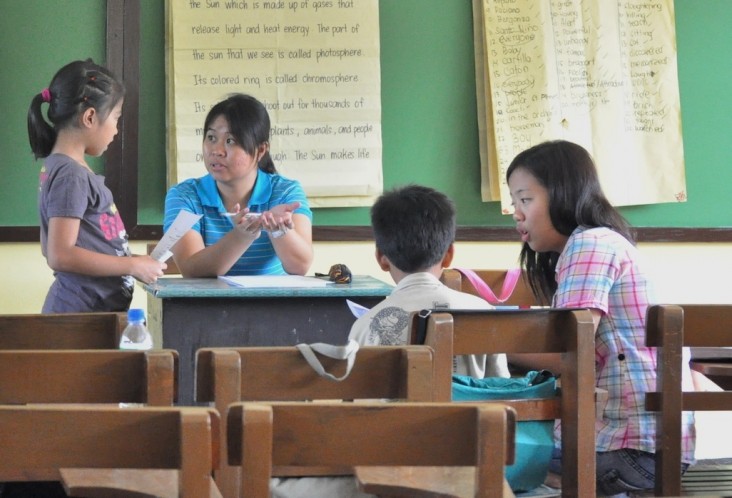
Dec. 2014—How do struggling young learners become independent readers in just one month? Send them to summer camp … summer reading camp, that is.
Mayor Rex Gatchalian of Valenzuela City, located in the Philippines’ Metro Manila region, is a champion of improving children’s reading skills, especially since a National Achievement Test in 2011 revealed a citywide 20 percent drop in literacy among sixth graders.
Gatchalian had already been working to strengthen the local educational system through the city’s 360-Degree Educational Investment Plan. He took this a step further by planning the summer reading camp for all 39 of the city’s public elementary schools. USAID, through its Education Governance Effectiveness (EdGE) program, has worked closely with the city since last year to ensure systemic planning, effective teaching methods and tangible results.
Before launching the camp, the Valenzuela City government provided materials and trained 600 classroom teachers to improve their ability to teach kids how to read—and to make reading interesting and fun. The teachers arrived at summer reading camp better equipped to help more than 16,000 third and sixth graders become independent readers.
“The reading lessons were intensive,” said Buenafe Sabado, division supervisor for English at the Department of Education Division Office for Valenzuela City. “Each day we devoted three hours just to reading—a far cry from the 50 minutes that are given to reading in a regular class day.”
The ambitious project paid off. A 2014 report by the Division Office for Valenzuela City shows a remarkable turnaround: 6,500 third and sixth graders—nearly half of the children who attended the 22-day camp—became independent readers.
“Kids shared with me that, before the camp, they could not read ‘big words’… and now they can,” said Gatchalian. He added that some kids started out unable to recognize an English word and that now they can read complete stories. “To achieve this in such a short time is remarkable,” he said.
The local school board will reach out to the still struggling readers who did not attend the camp.
EdGE, which runs from 2013 to 2018, now operates in 90 cities and municipalities across the Philippines and has reached over 580,000 young learners to date. Through this program, USAID is working to improve education governance to advance the reading skills for at least 1 million children nationwide by 2016. By unlocking children’s potential in the Philippines at an early age, USAID is helping them to build a solid educational foundation and, ultimately, gain workforce skills, serve their community and contribute to a more stable and prosperous country.
LINKS
Follow @USAID_Manila, on Facebook, on Flickr, on YouTube







Comment
Make a general inquiry or suggest an improvement.